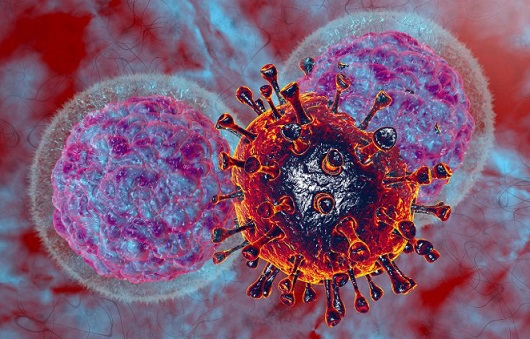Nikhil Prasad Fact checked by:Thailand Medical News Team Nov 26, 2025 3 months, 5 days, 20 hours, 6 minutes ago
Medical News: Understanding How the Immune System Sabotages Its Own Defenses
A new study has uncovered why some people infected with the original SARS-CoV-2 strain develop broad and powerful antibodies, while others produce weaker and narrowly focused immunity. In this
Medical News report, researchers show that a specific type of immune cell, known as natural killer or NK cells, can become overly activated and end up damaging the body’s own ability to produce strong long-term antibodies.
 Study shows overactive interferon driven NK cells can limit the body’s ability to generate broad
Study shows overactive interferon driven NK cells can limit the body’s ability to generate broad
protective COVID-19 antibodies
The research was conducted by scientists from the Stanford University School of Medicine USA, Harvard School of Public Health USA, Beth Israel Deaconess Hospital USA, the Chan Zuckerberg Biohub USA and the Stanford COVID 19 Biobank program. Their work provides deeper insight into how inflammation and interferon driven responses can limit the effectiveness of the immune system’s adaptive arm.
Highly Activated NK Cells Reduce Antibody Breadth
The study found that individuals who were “narrow neutralizers,” meaning their antibodies could only block a few viral variants, had NK cells that were extremely activated and expressed very high levels of interferon stimulated genes. These NK cells were also rich in cytotoxic proteins such as perforin, granzyme B and markers indicating they were primed to kill other immune cells.
By contrast, individuals with broad neutralizing antibodies had fewer NK cells, and those NK cells showed a more immature and less aggressive profile. They expressed inhibitory receptors like NKG2A and showed signs of slower activation. This difference suggests that too much inflammation early in infection disrupts antibody maturation.
NK Cells Attack Helper Cells Necessary for Antibody Creation
One of the most important discoveries was that interferon activated NK cells were capable of killing T follicular helper cells. These helper cells are crucial for guiding B cells to produce high quality antibodies capable of neutralizing many variants. When NK cells attack them, the entire antibody development process becomes impaired.
Laboratory experiments using cultured NK cells confirmed that interferon stimulation increased their tendency to kill TFH like cells. This killing response was specific and was not seen against other types of activated T cells, indicating a targeted disruption of antibody support structures.
Implications for Vaccines and Future COVID-19 Variants
These findings highlight a concerning reality. Excessive early inflammation, especially interferon driven activation, may actually weaken long term immunity by causing NK cells to interfere with the formation of broad antibodies. This knowledge may guide future vaccine design, helping scientists create formulations that avoid triggering harmful NK activation.
Conc
lusion
Overall, the study shows that while NK cells are essential for fighting infections, their interferon driven hyperactivation can sabotage the body’s ability to build durable and broad antibody defenses. Understanding how NK cells shape the immune landscape provides a clearer path toward developing better vaccines that protect against both current and future SARS CoV 2 variants. The work also highlights how delicate the balance of the immune system truly is, and how even protective cells can cause unintended harm when overstimulated.
The study findings were published in the peer reviewed journal: Nature Immunology
https://link.springer.com/article/10.1038/s41590-025-02341-1
For the latest COVID-19 news, keep on logging to Thailand
Medical News.
Read Also:
https://www.thailandmedical.news/articles/coronavirus
https://www.thailandmedical.news/articles/immunology
